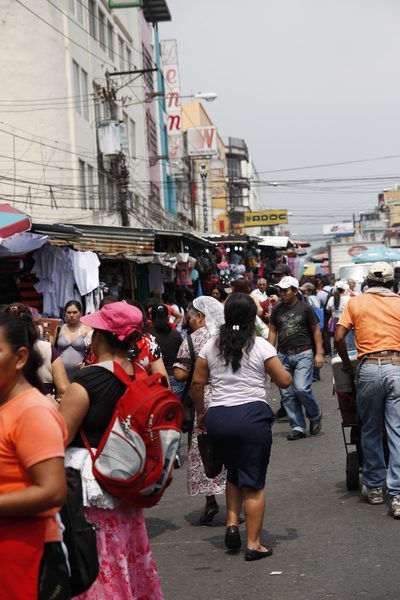As part of this year’s Blog Action Day, we take a look at how inequality drives the abuses that Amnesty works against every day.
Inequality. It’s a reality we all come to know and understand at some point in our lives.

For some of us, our understanding of it starts with a child’s game. I’m the king of the castle, you’re the dirty rascal. Remember that one? A simple game that cements power relationships. It reinforces inequality and the associations we make when we talk about it: king=rich=powerful; rascal=poor=helpless. (Notice how the powerful person is also a man? More on that later.)
Enter real life, where inequality is no longer a game, but a fact of our daily existence. If you’re a girl, inequality takes root from the moment you’re born. Why? Because gender stereotyping based on discriminatory attitudes happens everywhere. From the banal (She’s a girl, she should wear pink) to the heart-breaking (She’s a girl, she’s no use).
My Body My Rights
It is this discrimination against girls and women that underpins and drives Amnesty’s latest global campaign – My Body My Rights. Since March this year, we’ve been focusing the world’s attention on the inequalities that prevent people from claiming and exercising their sexual and reproductive rights.
Right now, we’re looking at El Salvador, where that country’s total ban on abortion is killing women and girls, and where women who have a miscarriage are often suspected of having an abortion and jailed for up to 50 years on charges of aggravated homicide.
Every year, thousands of women and girls in El Salvador are denied their human rights by this ban. It doesn’t matter whether they are 10 years old and pregnant because they were raped, or whether the pregnancy is a risk to their lives: in El Salvador, abortion is always a crime.
A society dominated by men
It’s no coincidence that all of this is happening within the context of a society where men dominate positions of power.
Women and girls in El Salvador have lower levels of education, higher school dropout rates and almost twice the rate of illiteracy compared to men and boys. A 2008 government survey found that almost half of Salvadoran women who had been in a relationship reported violence at the hands of their partner. Of them, 10% said they had experienced sexual violence.
In El Salvador, women and girls are expected to live up to traditional ideals. The expectation for them to be wives and mothers is prioritized above everything else. The total ban on abortion reinforces these stereotypes. The ban also reinforces inequality. According to the Citizen’s Group for the Decriminalization of Abortion, a local women’s rights organization, the women who are worst affected by El Salvador’s total abortion ban are the young and those living in poverty.
As Cristina, a Salvadoran woman who was sentenced to 30 years in prison after having a miscarriage, put it: “Of course, if I’d been the daughter of a politician, none of this would have happened to me… To start with, I would never have gone to a public hospital, because [I would have had enough] money to go to a private one. Me, a poor woman, where am I going to go to give birt h? Where everyone goes. They [the authorities] violate people’s rights, and even more so women’s rights…. This has got to be underlined: the issue is women’s inequality.”
Help us tear away at the inequalities that are stopping women and girls in El Salvador from deciding how to live their lives. Sign our petition today calling for the decriminalization of abortion in El Salvador.
Get blogging!
16 October is Blog Action Day, a global moment for bloggers and activists. This year the theme is inequality, and we hope that this blog will give you food for thought to write about these issues yourself – and help us promote our petition, too. Find out how you can get involved.
Need more inspiration? See this blog by a young Salvadoran activist on how El Salvador’s abortion ban changed her life


